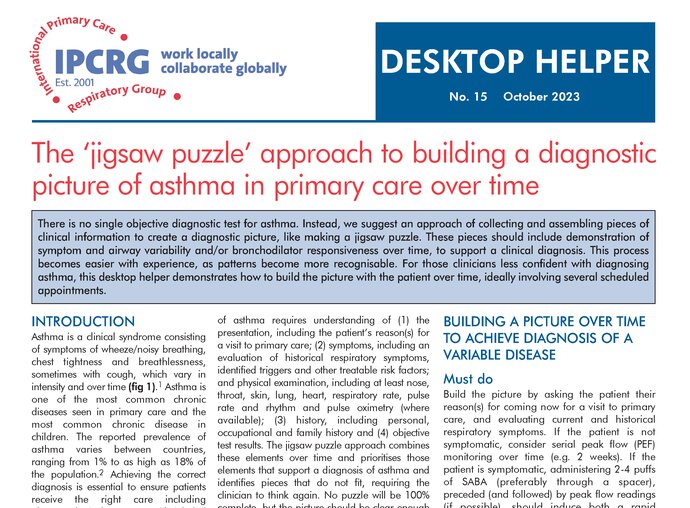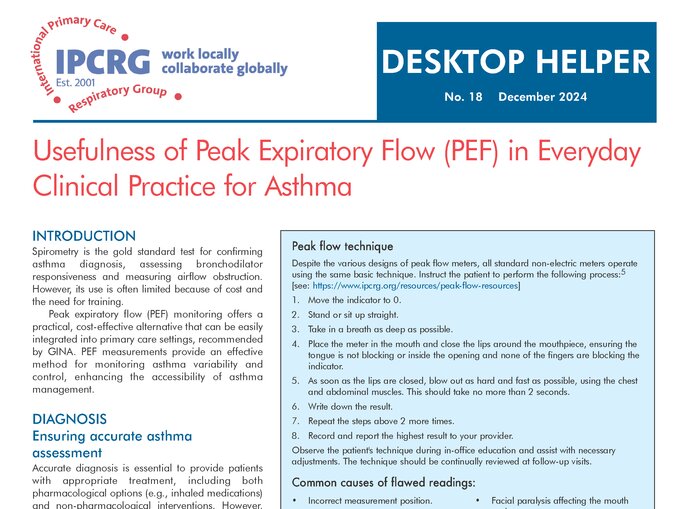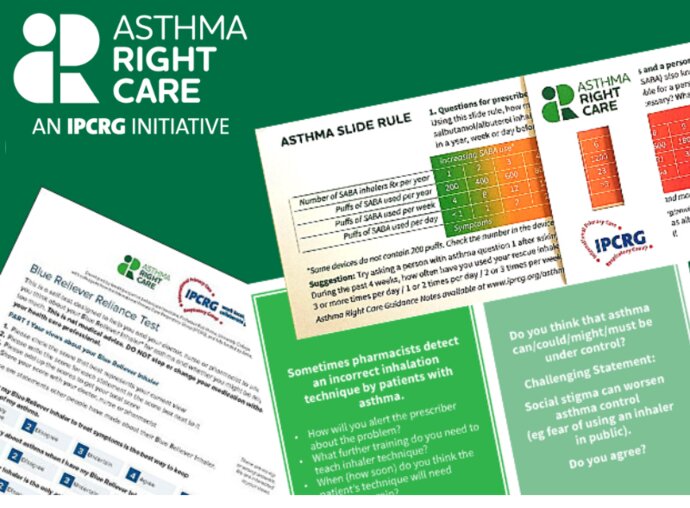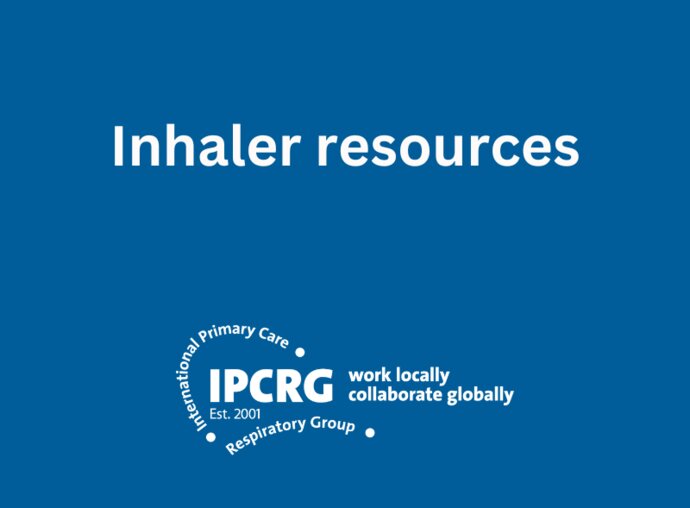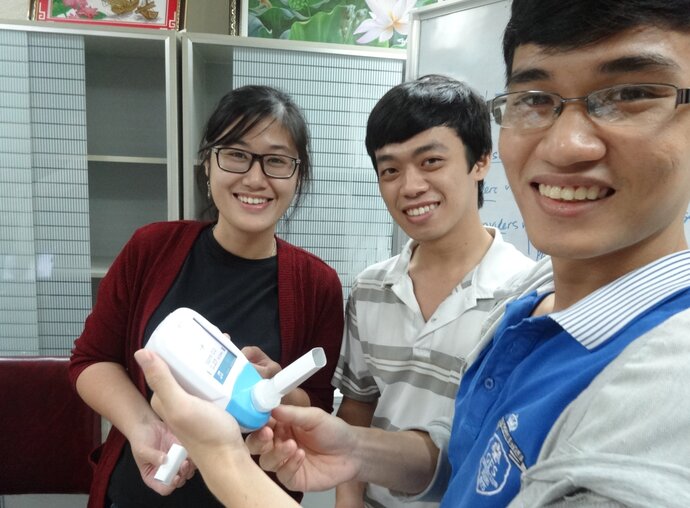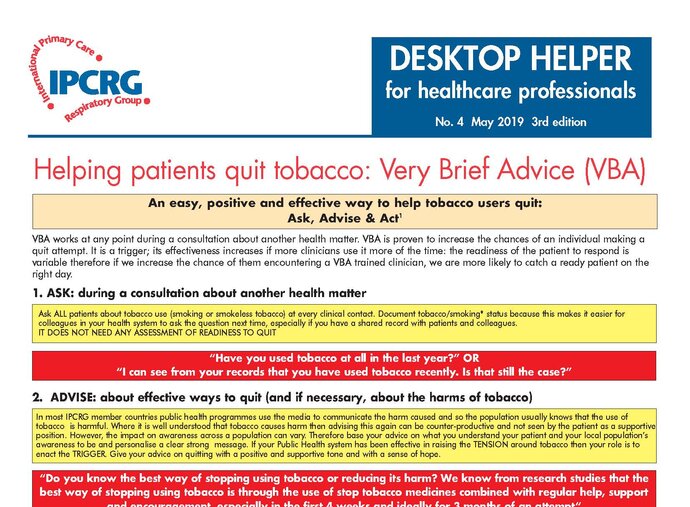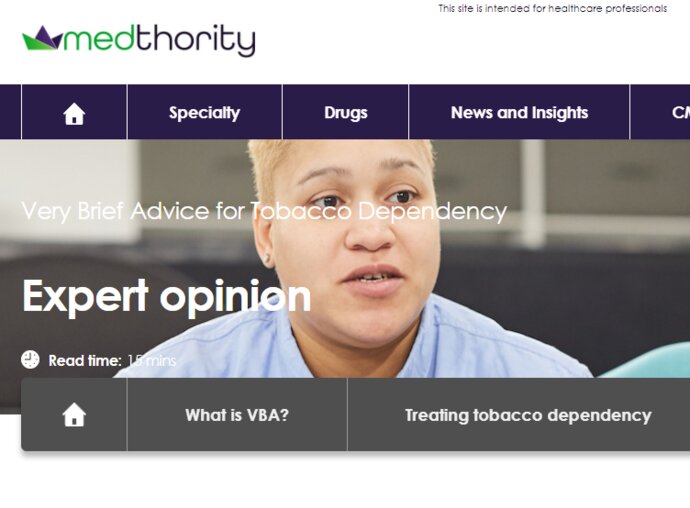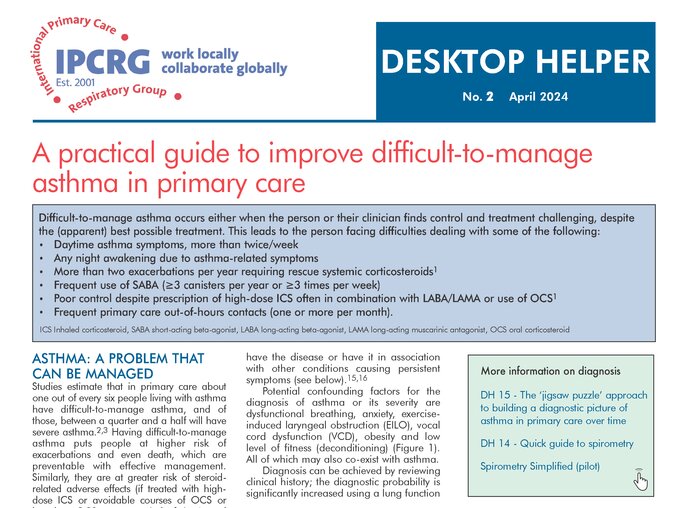What does good quality asthma care look like?
IPCRG is regularly asked by primary care clinicians to define good quality care. We take the view that primary care is person-centred, and therefore the best way to define quality is from the perspective of the person at risk of, or with the condition. From our regular conversations with expert patients and clinicians we have summarised what good quality care should look like from a patient perspective and how can clinicians provide that in 8 person-centred statements. These are divided into four areas: Diagnosis, Management, Review, When control is poor. Our vision is that clinical teams will use them to benchmark their practice and potentially identify an area for improvement. Our own programme of work is steered by these statements. We are currently defining the competencies required to deliver them and the teaching methods and tools to enable delivery.
People with asthma deserve...
Diagnosis
1. A timely, accurate and formal/objective diagnosis of their asthma by their primary health care team.
Management
2. To receive adequate inhaler treatment for their asthma according to the best practice recommendations for their level of disease severity.
3. To participate in the choice of treatment for their asthma, including the decision between different options of inhaler devices.
4. To have appropriate inhaler technique training and to agree an asthma action plan shared with their health care providers.
5. Counselling and treatment if they are tobacco dependent, a yearly flu vaccination and COVID-19 vaccination
Review
6. Follow-up appointments at acceptable intervals for the management of their asthma that must include structured assessment of control, wellbeing & evaluation of future risk.
7. That their difficult to manage asthma is evaluated by their primary health care team following a structured approach in order to identify any solvable questions before they are referred to secondary care.
When control is poor
8. To have easy and timely access/referral to a primary or secondary health care professional who is skilful in asthma management whenever their symptoms cannot be self-managed or when their asthma cannot be managed in primary care.

